
The 1945 State Constitution of the Republic of Indonesia is the supreme law and basis for all laws of Indonesia.

The Investigating Committee for Preparatory Work for Independence,sometimes referred to,but better known locally,as the Investigating Committee for Preparatory Work for Indonesian Independence,was an organization set up in March 1945 by the Japanese military authority in Java during the Japanese occupation of the Dutch East Indies as the initial stage of the establishment of independence for the area under the control of the Japanese 16th Army. The BPUPK held two plenary meetings;the first was from 28 May to 1 June 1945 and the second was between 10 and 17 July 1945.

The Preparatory Committee for Indonesian Independence was a body established on 7 August 1945 to prepare for the transfer of authority from the occupying Japanese to Indonesia. It approved and promulgated the first Indonesian constitution,and appointed Sukarno president.
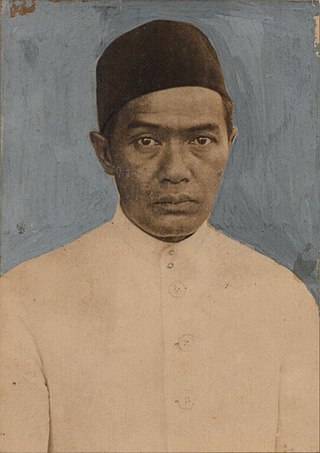
Mas Mansoer was an Indonesian religious leader who served as the 4th chairman of Muhammadiyah from 1937 to 1942. He was declared a national hero by President Sukarno in 1964.

Alexander Andries Maramis,more commonly known simply as A. A. Maramis,was an Indonesian politician and National Hero of Indonesia,who was involved in the struggle for independence. He was a member of the Investigating Committee for Preparatory Work for Independence (BPUPK),the organization which drafted the Constitution of Indonesia. In the early stages of the Indonesian government,following the Proclamation of Independence,he served as both Minister of Finance and Minister of Foreign Affairs. After the end of the Indonesian National Revolution,he served as the Indonesian ambassador to several nations,including the Philippines,West Germany,and the Soviet Union.

Banten Sundanese or Bantenese is one of the Sundanese dialects spoken predominantly by the Bantenese —an indigenous ethnic group native to Banten —in the westernmost region of the island of Java,and in the western Bogor Regency,as well as the northwestern parts of Sukabumi Regency. A variety of Bantenese is spoken by the Ciptagelar people in the Kasepuhan Ciptagelar traditional community in the Cisolok district and the Kasepuhan Banten Kidul traditional community in the Lebak Regency.

Pondok Modern Darussalam Gontor Ponorogo,also known as Pondok Modern Gontor,abbreviated as PMDG,or simply Pesantren Gontor,is a pesantren in Ponorogo Regency,East Java,Indonesia. Since its founding in 1926,the pesantren has become famous for the application of discipline,heavy emphasis on foreign languages,and strong network and cadre of alumni. It also has been an educational institution known for not being specifically tied to any political and social organization. The pesantren is considered the backbone of Muslim society in Indonesia,producing numerous leading figures in the history of Islam in Indonesia.
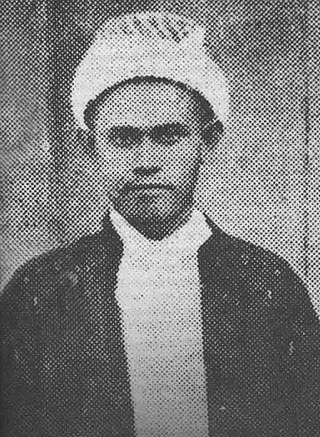
Brigadier General Kyai Hajji Syam'un better known as Ki Syam'un was an Islamic scholar and fighter for Indonesian Independence. In 1916,Syam'un founded the Pesantren Al-Khairiyah,which in subsequent development became Al-Khairiyah Islamic College as an educational institution and organization. Syam'un received military education during the Japanese occupation of the Dutch East Indies and was later appointed Battalion Commander (Daidancho) in the Pembela Tanah Air volunteer army. In 1945,he was appointed regent of Serang until his death in 1949.He was awarded the title National Hero of Indonesia in 2018.
Kyai Hajji Wasyid bin Muhammad Abbas better known as Ki Wasyid,was an Indonesian hero who led the Cilegon war on July 9,1888,until his fall on the battlefield on July 30,1888,in Banten. In practice,Ki Wasyid's movement in the war was heavily influenced by the thinking of his teachers:Nawawi al-Bantani and Abdul Karim al-Bantani,a murshid of Qadiriyyah wa Naqshbandiyah tariqa.
{{Infobox royalty | embed = | name = Sultan Syarif Muhammad ash-Shafiuddin | title = | titletext = | more = | type = | image = Syarif Muhammad ash-Shafiuddin of Banten.png | image_size = | alt = | caption = Sultan Syarif Muhammad ash-Shafiuddin

Abuya Kyai Hajji Ahmad Muhtadi bin Dimyathi al-Bantani or better known as Abuya Muhtadi is an Indonesian Muslim cleric from Banten. He is known as one of the Muslim scholars close to President Joko Widodo. At the Zikir Kebangsaan which was first held by the Indonesian government in the Merdeka Palace in 2017,Muhtadi was one of the religious leaders invited by the president. In the 2019 Indonesian presidential election,he supported a friend who was also a Muslim cleric from Banten,Ma'ruf Amin,who became the running mate of incumbent presidential candidate,Joko Widodo. Even so,in the 2014 Indonesian presidential election,he supported Prabowo Subianto as a candidate for Indonesian President and instructed his students to vote for Subianto.

Johannes Latuharhary was an Indonesian politician and nationalist of Moluccan descent,who served as the first Indonesian governor of Maluku from 1945 until 1955,though he did not assume office in Maluku until 1950. A Protestant Christian,Latuharhary was an early proponent of Moluccan inclusion in the Indonesian state and he was an active participant in the struggle for Indonesia's independence.

Mr. Raden Sastromoeljono was a lawyer and the acting mayor of Jakarta. He was a member of the Perhimpoenan Indonesia organization,and in 1945 was appointed as the member Investigating Committee for Preparatory Work for Independence.

Hilman Djajadiningrat was an Indonesian aristocrat and politician.
Kyai Haji Abdul Halim,known as KH Abdul Halim Majalengka (1887–1962) was an Indonesian Islamic scholar and nationalist figure. He founded a number of Islamic organizations in the Dutch East Indies,including the Hayatul Qulub and the Persyarikatan Ulama and was a member of several national consultative councils during the transition to Indonesian independence in the 1940s. He was declared a National Hero of Indonesia in 2008 by then-president Susilo Bambang Yudhoyono.

Samsi Sastrawidagda was an Indonesian politician who was the first Minister of Finance of Indonesia,serving for just under one month in September 1945. He was also one of the founders of the Indonesian National Party.
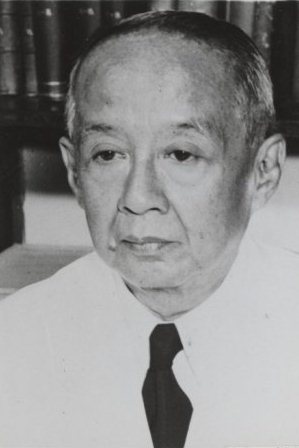
Husein Jayadiningrat,or Hoesein Djajadiningrat in older spelling,was an Indonesian scholar in Indonesian studies,Islamic law,and native Indonesian literature. He distinguished himself as one of the first native Indonesian to earn a doctoral degree.
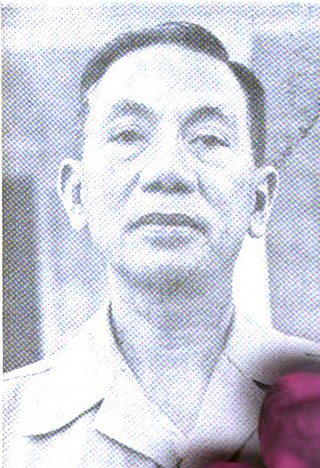
Soetardjo Kartohadikusumo was an Indonesian politician who served as the first Governor of West Java in 1945. A former member of the Volksraad,he was also renowned for the 1936 Soetardjo Petition.
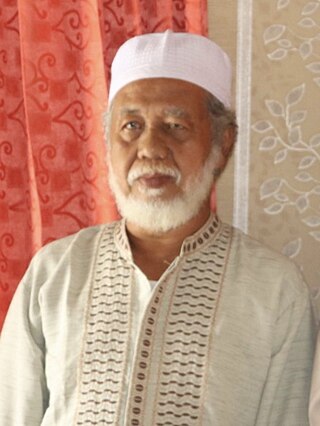
Abuya Kyai Hajji Muhammad Murtadho bin Dimyathi al-Bantani or better known as Abuya Murtadho is an Indonesian Muslim cleric from Banten. He is an influential Bantenese cleric whose character is often used as a reference for politicians to visit his residence,including figures from political parties,the police,high-ranking institutions,even presidential and vice-presidential candidates.
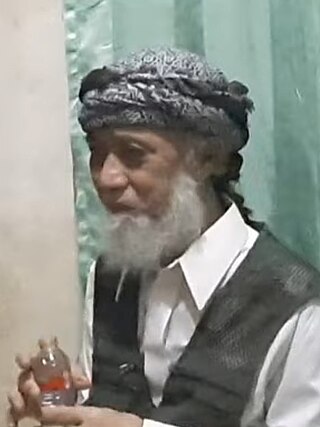
Abuya Kyai Hajji Abdul Aziz Fakhruddin bin Dimyathi al-Bantani or better known as Abuya Ade Dimyathi is an Indonesian Muslim cleric from Banten. He is one of the Bantenese influential clerics who is often invited by his congregation to lead recitations,dhikr,or tawassul at their place.
















